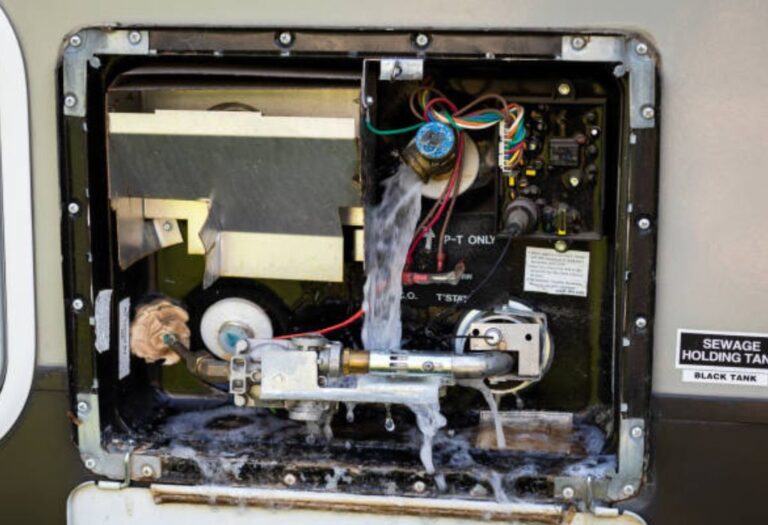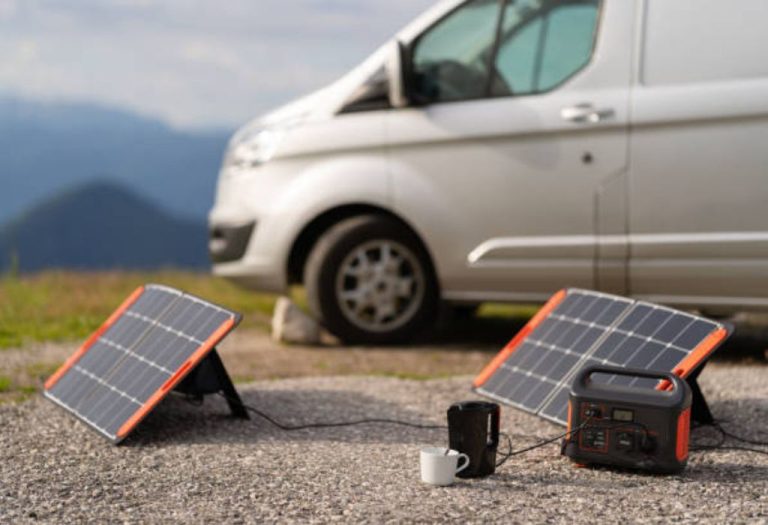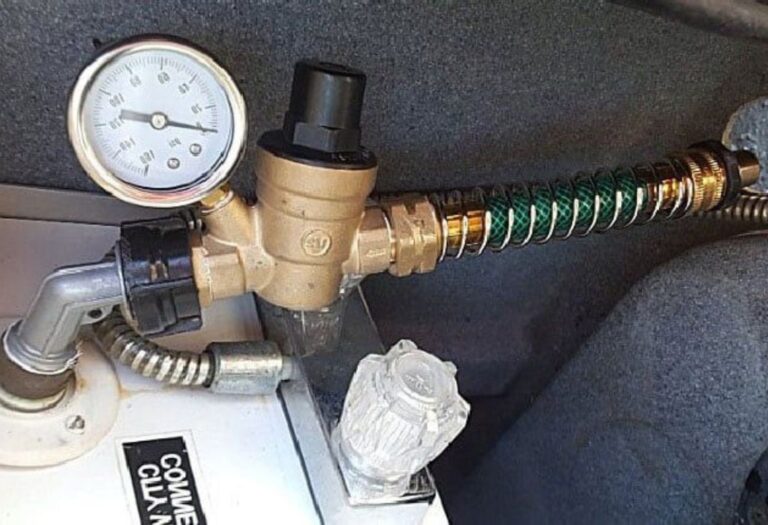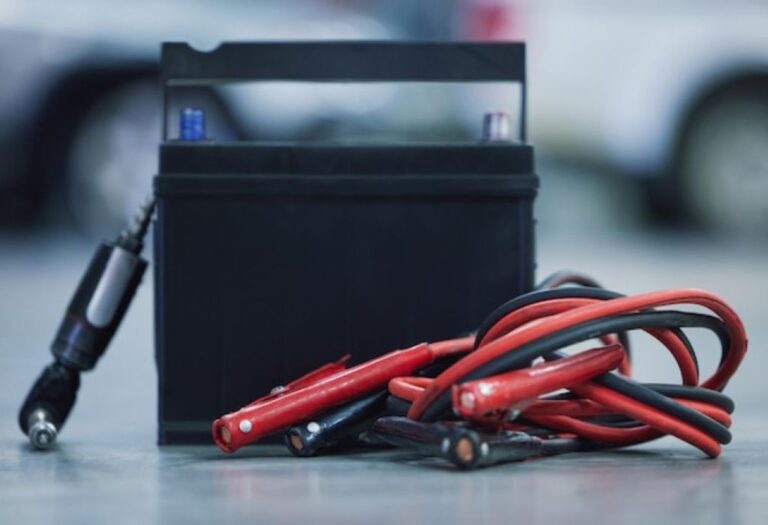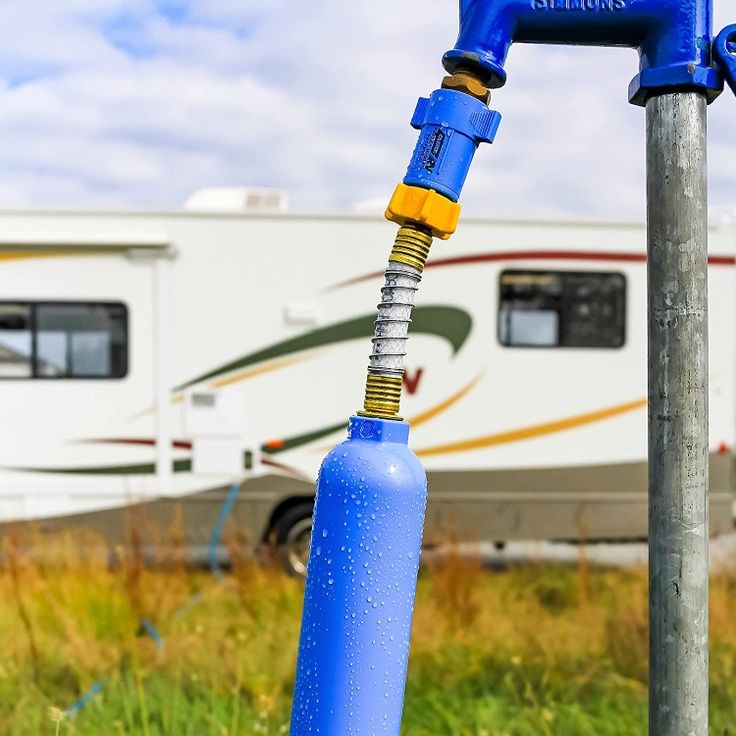The Real Lifespan of RV Batteries (and How to Extend It)
Few things can ruin an RV adventure faster than a dead battery. Imagine you’re parked at a beautiful campsite, ready to enjoy the evening, when suddenly your lights dim, your fridge shuts down, and your water pump refuses to work.
For many RV owners, this isn’t just an inconvenience — it’s a trip-ending disaster.
That’s why knowing how long RV batteries last (and how to make them last longer) is so important. Battery life depends on many factors, including the type of battery you have, how you use it, and how well you maintain it.
In this detailed guide, you’ll learn:
- The average lifespan of different RV battery types
- Factors that shorten (or extend) battery life
- Clear maintenance and charging tips
- How to choose the right battery for your needs
- FAQs that most RV owners ask about batteries
By the end, you’ll know exactly how to keep your batteries healthy — saving money and avoiding power emergencies during your trips.
1. Understanding RV Batteries
Before talking about lifespan, let’s break down the basics of RV batteries so you know what you’re working with.
House Batteries vs. Chassis Batteries
- House Batteries – These power the living area of your RV, running lights, refrigerators, fans, water pumps, and entertainment systems.
- Chassis Batteries – These start the RV engine, similar to a car battery.
When people ask how long RV batteries last, they’re usually referring to house batteries.
Main Types of RV Batteries
Each type of RV battery has its pros, cons, and expected lifespan.
- Flooded Lead-Acid Batteries
- Affordable and widely available.
- Require regular maintenance (adding distilled water and cleaning terminals).
- Average lifespan: 2–5 years.
- Affordable and widely available.
- AGM Lead-Acid Batteries
- Sealed and maintenance-free.
- Better resistance to vibration and cold temperatures.
- Average lifespan: 4–7 years.
- Sealed and maintenance-free.
- Gel Batteries
- Sealed, spill-proof, and handle deep discharges better.
- Require precise charging voltages.
- Average lifespan: 4–6 years.
- Sealed, spill-proof, and handle deep discharges better.
- Lithium-Ion Batteries
- Lightweight, extremely long-lasting, and fast charging.
- Higher upfront cost but the lowest long-term cost.
- Average lifespan: 8–15 years.
- Lightweight, extremely long-lasting, and fast charging.
2. Average Lifespan of RV Batteries by Type
| Battery Type | Average Lifespan | Best For |
| 1. Flooded Lead-Acid | 2 – 5 years | Budget-friendly users |
| 2. AGM Lead-Acid | 4 – 7 years | Low-maintenance needs |
| 3. Gel | 4 – 6 years | Occasional deep discharges |
| 4. Lithium-Ion | 8 – 15 years | Full-time RVers & heavy use |
Example:
- A weekend camper using an AGM battery with proper charging can expect 6–7 years of service.
- A full-time RVer using a low-quality flooded battery with poor charging habits may only get 2 years.
3. Factors That Affect RV Battery Lifespan
Depth of Discharge (DoD)
- Lead-acid batteries last longest when kept above 50% charge.
- Lithium batteries can safely go down to 20% charge without damage.
The deeper you discharge a battery, the fewer total cycles it will provide.
Charging Habits
- Overcharging causes excessive heat and electrolyte loss.
- Undercharging leads to sulfation, which reduces capacity.
- Use a smart charger that automatically adjusts voltage.
Storage Conditions
- Heat accelerates internal corrosion.
- Freezing temperatures can damage and crack lead-acid batteries.
- Always store in a cool, dry location during the off-season.
Maintenance Quality
- Check water levels in flooded batteries monthly.
- Keep terminals clean and tight.
- Test voltage regularly.
Battery Brand & Quality
- Premium brands often use better materials.
- Longer warranties usually mean longer life expectancy.
4. Signs Your RV Battery Is Failing
- Lights flicker or dim faster than usual.
- Appliances operate poorly or shut off unexpectedly.
- Battery loses charge quickly, even after a full charge.
- Swelling, bulging, or cracking in the casing.
- Strange smells, such as rotten eggs (a sign of overheating or damage).
If you notice two or more of these signs, test your battery with a multimeter or at a service center.
5. How to Extend the Life of Your RV Batteries
Avoid Deep Discharges
Keeping lead-acid batteries above 50% and lithium above 20% will greatly improve cycle life.
Use a Smart Charger
[Insert Product Link: Smart RV Battery Charger]
A smart charger prevents overcharging and undercharging, both of which kill batteries early.
Install Solar Panels
[Insert Product Link: Portable Solar Kit for RVs]
Solar panels can keep batteries topped up without overcharging, especially during storage.
Perform Regular Maintenance
- Clean terminals every 3–4 months.
- Top up distilled water for flooded batteries.
- Check voltage at least once a month.
Proper Off-Season Storage
- Disconnect and remove the battery.
- Store in a cool, dry location.
- Recharge every 30–60 days.
6. Best Practices for Charging RV Batteries
- Shore Power Charging – Ideal for long campground stays.
- Alternator Charging – Maintains charge while driving.
- Solar Charging – Silent and eco-friendly for long-term maintenance.
- Generator Charging – Fast but best for short-term use.
Tip: Avoid leaving batteries on a constant trickle charge without a smart regulator — it can overcharge them.
7. Choosing the Right RV Battery for Long Life
- Weekend Campers – AGM or mid-range flooded lead-acid works well.
- Full-Time RVers – Lithium is best for longevity and reliability.
- Boondockers – Consider high-capacity lithium or multiple AGM batteries with solar support.
8. FAQs About RV Battery Lifespan
- Can I run my RV AC on batteries?
- Not for long — air conditioners draw massive power. You’ll need multiple batteries and possibly an inverter generator.
- Not for long — air conditioners draw massive power. You’ll need multiple batteries and possibly an inverter generator.
- Do solar panels make batteries last longer?
- Yes — by keeping them charged without overcharging.
- Yes — by keeping them charged without overcharging.
- How do I know when it’s time to replace my battery?
- When capacity drops below 80% and charging no longer lasts.
- When capacity drops below 80% and charging no longer lasts.
- Can mixing battery types shorten lifespan?
- Yes — always use identical batteries in the same bank.
- Yes — always use identical batteries in the same bank.
Conclusion
The real lifespan of RV batteries depends on type, usage habits, and maintenance. A low-cost flooded battery might last just 2–3 years, while a high-quality lithium battery could serve you for over a decade.
By practicing proper charging, avoiding deep discharges, and storing batteries correctly, you can extend their life and avoid costly replacements.
I’m David R. Coleman, the founder, lead writer, and lifelong tool enthusiast behind GarageToolPro.com. With years of experience in automotive repair, woodworking, and home DIY projects, I created this platform to share practical tips, detailed tool reviews, and step-by-step guides that help mechanics, hobbyists, and homeowners get the job done right the first time.

